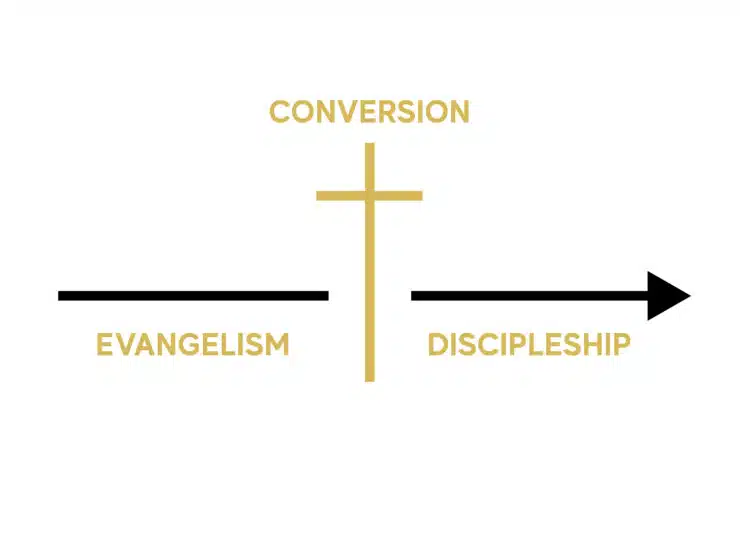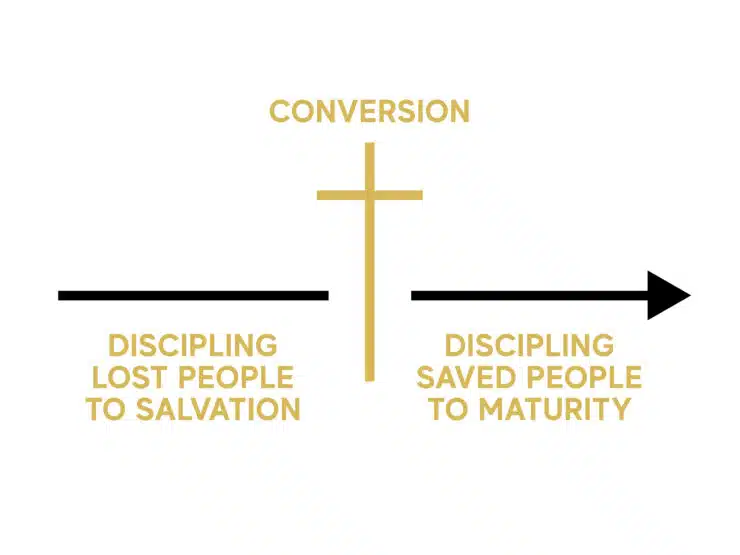Following Christ is a life of surprise. I’ve not thought of it this way but it’s true. I used to think that the Christian life could be described by rules and expectations, the straight and narrow. That might be true in one sense, but following Him is experiencing surprises of joy and peace when I could have expected complete negativity. Hod provides the grace and mercy just when we need them. Nicky summarizes our experiences as surprised by abundance and passion, which are contrary to the cultural norm as fear of being without and anxiety. God provides surprising bursts of wisdom when we need it the most, a spirit of community with like minded followers of Christ, and eye witness accounts of generosity and people being good to others. How could we neglect or minimize what He does.
In a FaceBook survey, we asked church attenders why they tend to not invite people to their churches. Their responses were defensive in nature, but surprisingly candid. While each response was worded differently, they all framed one thing. Fear. The following seven reasons seemed to resonate most often.
EXCUSE #1: They didn’t believe it was their job. I didn’t need a survey to know this one. Pastors regularly hear the same justifications from their church family, excuses to opt out of potential opportunities to promote faith:
· “But God didn’t call me into the ministry”
· “But God didn’t give me the gift of evangelism”
· “But God didn’t give me an outgoing personality”
· “But I don’t know enough about the Bible to be effective”
How can a church leader move people from defense to offense? Try to explain how God compensated for our social anxieties before we were even born. As a primary approach to build His Kingdom, He designed an incoming strategy to compensate for our lack of an outgoing personality. Your church family may not yet know that 95% of the body of Christ came into the body of Christ because of people just like them, people who aren’t in vocational ministry, don’t have the spiritual gift of evangelism, and aren’t Bible scholars. It might surprise your church family that, statistically, they have a much better shot at success than their pastor does!
EXCUSE #2: They fear rejection. Actually, so do I. In fact, no normal person would really ever enjoy rejection, so this one isn’t a surprise either. But that’s the problem with fear in general. It tends to immobilize us.
How can a church leader move people from defense to offense? Try to show the difference between being rejected (which Jesus said we’d all experience) and fearing rejection (which we all have to get over). Maybe in a weekend service or training opportunity, simply ask for a show of hands.
“How many of you accepted an invitation to church the first time you were offered one?” or “How many of you gave your heart to Jesus the first time you heard the Gospel?”
After hardly anyone raises their hand, explain how the people in their oikos are not being any more stubborn than they probably were! But most of your church family will certainly welcome your help in framing a clear and effective strategy to share their faith, so offer them one, one that will greatly enhance the possibility of a positive response from the people they share Jesus with.
EXCUSE #3: They think their church is a warzone. The survey indicated that people tend to be embarrassed by an underlying spirit of conflict, one that is present in way too many churches.
How can a church leader move people from defense to offense? Rally your church family around something great. Charismatic leaders do not unite a congregation. They can fill a room, but only a common mission will unite the people in it over the long haul. Give your church family something great to rally around, like the Greeeeeat Commission! I don’t know why, but Christians who aren’t outward focused always seem to default to pettiness about worship style and theological soapboxes, especially if they have nothing better to do. Given nothing great to pursue, people can quickly become armchair quarterbacks and critique a ministry or find opportunities to major on minor issues.
EXCUSE #4: They don’t feel supported by their church. A lack of support was perceived in different ways:
· “Our church is judgmental toward non-believers.”
· “Our weekend services are not very compelling.”
How can a church leader move people from defense to offense? Assess how your church systems support an attender’s personal mission to their oikos. Have a conversation with your staff or lay leaders about how valid those concerns might be. You can’t solve a problem until you understand the problem, so facilitate enough honest conversations to figure out what’s really going on with your church family.
EXCUSE #5: They fear they’ll be exposed as a mediocre Christian. I wouldn’t have guessed this one. “If they come to church and hear how Christians are supposed to live our lives, they’ll know I’m a disappointment.”
How can a church leader move people from defense to offense? Try to help people connect the dots between personal growth and personal mission. Oikos is as much a discipleship regimen as it is anything. Our oikos becomes an accountability factor in the process of our own personal growth. So, you’re not the best Christian in the world yet. But remember, it’s still early!
EXCUSE #6: They don’t feel they have any non-churched friends. Actually, the longer you’re a believer, the less likely you are to identify non-believers as part of your relational world.
How can a church leader move people from defense to offense? Everyone has non-believers in their oikos, but most church families need to be trained to identify them.
EXCUSE #7: They forget to think about it. When I hear that one, I cringe. I mean, really? No pastor should ever allow the people they lead to forget what their purpose is.
How can a church leader move people from defense to offense? Don’t let them forget to think about it. Ever. I’ve found that many pastors never seem to want to repeat anything. I know repetition challenges our creative instincts and, I’m sure, people appreciate things that are new and innovative. But there are just certain things we have to keep hammering home. Good parents don’t worry they’ll remind their children too often to brush their teeth, to take a bath or shower, or finish their vegetables. No good parent ever thought to not remind their kids of those healthy habits because they were afraid a child might think they were being too repetitive. Raising healthy children requires that we repeat ourselves often and annoyingly about those things that matter most.
All that to say, rather than complain about the excuses people come up with, take the offensive and try to remove those excuses before they have the chance to surface.



